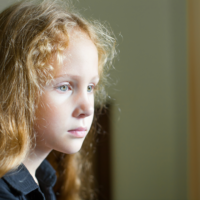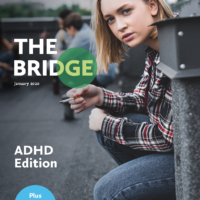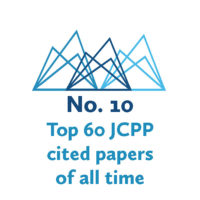Pre-schoolers
-

Mental disorders are under researched yet prevalent in children under 7 years
Mira Vasileva and colleagues in Germany and Australia recently compiled a Research Review for the Journal of Child Psychology and Psychiatry on the prevalence of mental disorders in children <7 years old.
Read more -

Variable sleep schedules might put preschoolers at risk of academic difficulties
New data suggest that internalizing problems are associated with sleep variability and that cognitive ability is associated with sleep timing.
Read more -

Can boosting physical activity improve ADHD symptoms in preschoolers?
“Our study findings highlight the possibility that MVPA might be a tool that can be used to reduce preschoolers’ ADHD behaviours and associated impairments, especially for young children at risk for ADHD” Betsy Hoza.
Read more -

Early caregiving experiences shape adolescent attachment profiles
Secure attachment in adolescents seems to be associated with robust mental health and social skills. How the quality of early caregiving impacts on attachment security in adolescence, however, is less clear.
Read more -

January 2020 issue – The Bridge ADHD edition
Special edition of The Bridge on ADHD, includes guidelines on service transition for young people, substance use, emotional impulsivity, emotion dysregulation, diagnosis and misdiagnosis.
Read more -

New developmentally appropriate diagnostic criteria need to be established to identify ADHD early in preschoolers
Attention-deficit/hyperactivity disorder (ADHD) typically emerges during preschool years and in a subset of children, can persist into adolescence. Early identification might help promote a favourable ADHD trajectory, but the current predictors of ADHD persistence are insufficient.
Read more -

Continued family dysfunction accounts for the association between childhood adversity and adolescent self-harm
Non-suicidal self-injury (NSSI) is any deliberate attempt at inflicting physical self-harm in the absence of suicidal intent. NSSI peaks during adolescence, with roughly 17% of adolescents reporting having engaged in it at least once.
Read more -

Dysregulation profile risk may be identified in infancy
The “dysregulation profile” (DP) describes a child psychopathology construct that measures broad-based, generalised emotional and behavioural dysregulation using the Child Behaviour Checklist
Read more -

Aggression toward siblings during the preschool years: When does it become atypical?
Most children grow up with siblings. During early childhood, siblings spend a great deal of time together and must navigate challenging situations such as sharing toys and parental attention, features that make conflict inevitable and often emotionally intense.
Read more -

Most Cited JCPP Articles #10 of 60
Most cited JCPP papers #10 of 60: Common emotional and behavioral disorders in preschool children: presentation, nosology, and epidemiology
Read more